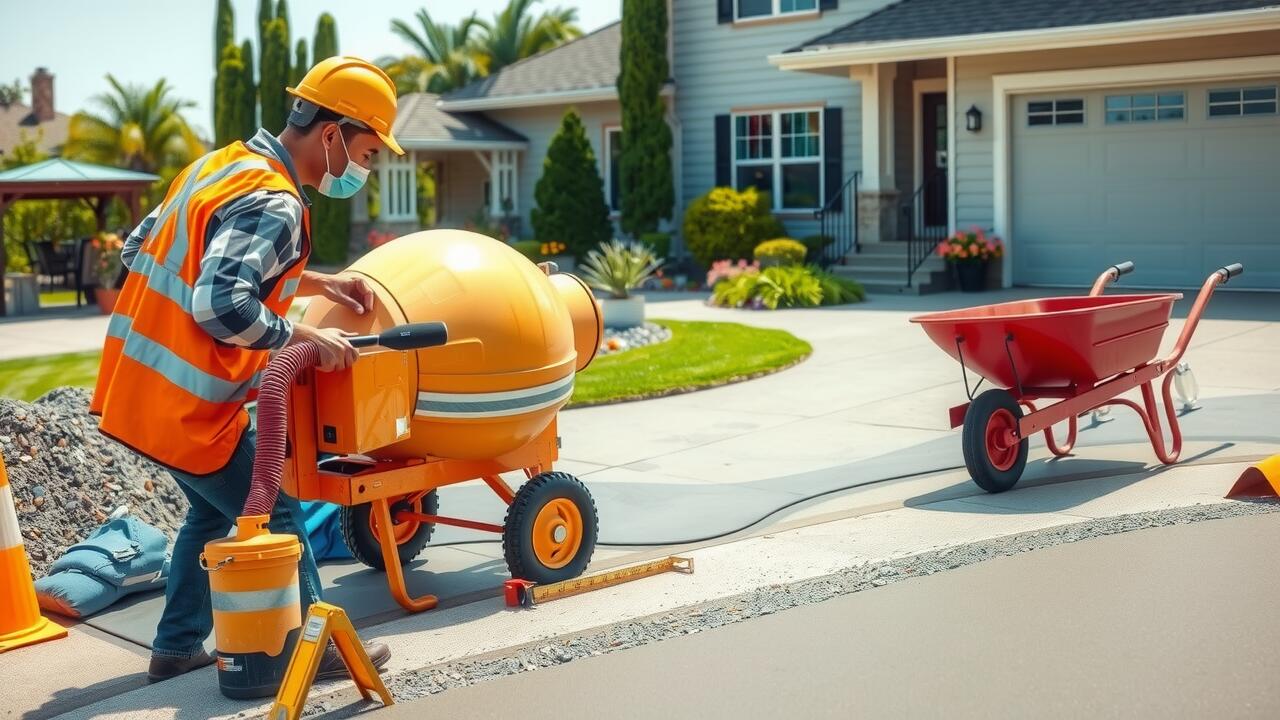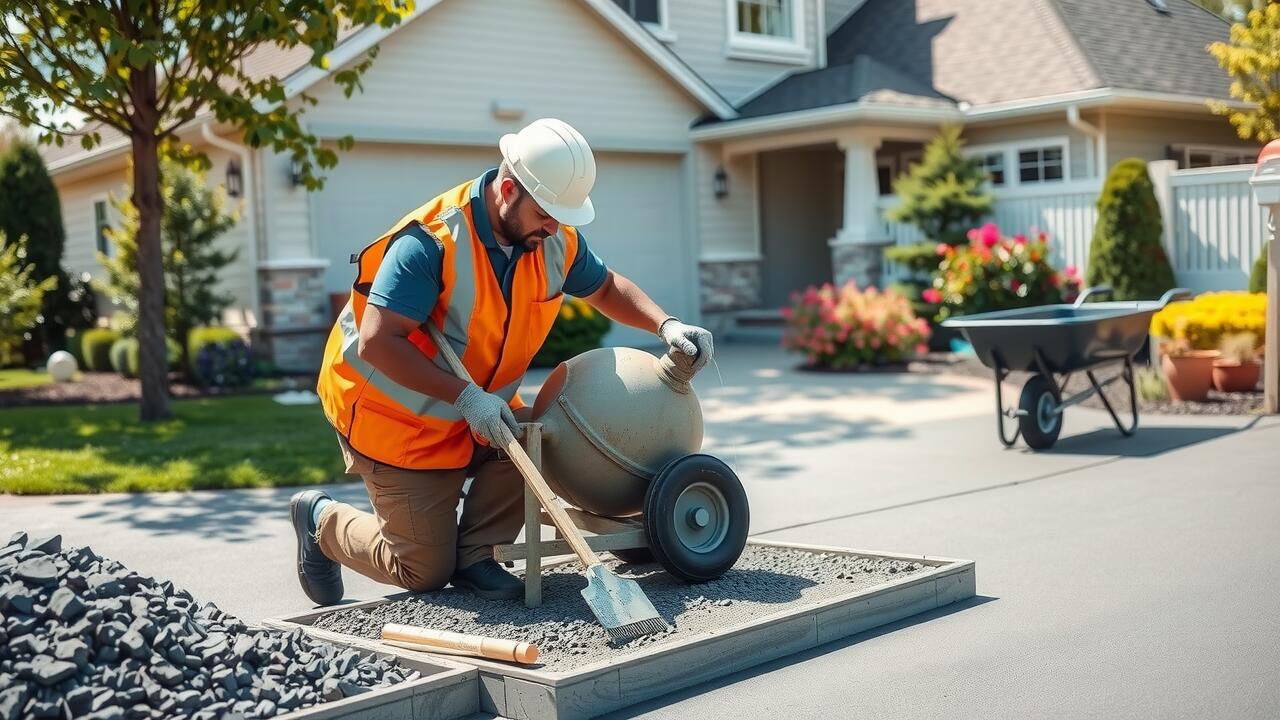
Seasonal Considerations for Installation
Seasonal factors play a crucial role in driveway installation, particularly when considering the temperature and weather conditions during the project. Hot summer months often provide ideal conditions for asphalt to be laid down smoothly, ensuring proper adhesion and a flawless finish. Conversely, extreme cold can halt installations altogether, as asphalt may not cure effectively in chilly temperatures. Rain and heavy snowfall can also pose challenges, leading to potential delays and complications in the installation process.
Planning your driveway installation during optimal seasons can save both time and money. Contractors often experience busier schedules during the spring and summer months, which might affect pricing and availability. Therefore, homeowners should consider timing carefully to avoid potential pitfalls. Early autumn may offer a sweet spot, providing favorable weather while bypassing the peak demand period of summer.
Best Time of Year to Install
The optimal time to undertake driveway installation typically falls during the warmer months. Asphalt requires specific temperature conditions for proper adhesion and curing. Installation during late spring through early fall ensures that the material can be laid down effectively, allowing for a smoother finish and quicker drying times.
In colder months, temperatures drop, which can negatively impact the quality of the installation. Freezing conditions can lead to cracking and other issues that may arise if asphalt is installed improperly. Homeowners should be mindful of local climate patterns when planning driveway installation to achieve the best results and longevity for their new surface.
Comparing Asphalt to Other Driveway Materials
When considering driveway installation, asphalt presents both advantages and disadvantages compared to other materials such as concrete, pavers, and gravel. Asphalt offers a smooth finish and is generally more affordable than concrete, making it an appealing choice for homeowners looking to budget their projects. It can withstand heavy loads and is known for its durability. However, asphalt may require more frequent maintenance, particularly in regions with extreme weather fluctuations.
Concrete, while initially more expensive, has a longer lifespan and is more resistant to cracking than asphalt. Paver driveways add aesthetic appeal with various design options. They tend to be more expensive to install but offer flexibility in repairs. Gravel driveways are the least costly upfront, but they can require ongoing upkeep to maintain a clean and stable surface. Each material has unique characteristics that should be evaluated based on individual needs and preferences during driveway installation.
Pros and Cons of Asphalt
Asphalt driveways offer several advantages that make them a popular choice for homeowners. The material is known for its affordability, often presenting a lower initial cost compared to alternatives like concrete. Installation is relatively quick, typically completed within a day or two, allowing homeowners to access their driveways sooner. Additionally, asphalt provides a smooth surface that is easy to maintain and repair. When damages occur, patching is straightforward, making it an appealing option for those concerned about long-term upkeep.
On the downside, asphalt driveways have some drawbacks worth considering. The material is susceptible to weather conditions, particularly extreme heat and cold, which can lead to cracking or deformation over time. Regular maintenance, including sealcoating every few years, is necessary to prolong the life of the driveway. Furthermore, while asphalt can adapt well to various conditions, it may not last as long as some other materials without proper care. Buyers should weigh these factors carefully before opting for asphalt driveway installation.
Local Pricing Variations
Pricing for asphalt driveway installation can significantly vary between different regions. Factors such as local labor costs, the availability of materials, and regional regulations can all influence the final price. For areas with higher costs of living, homeowners may find that driveway installation prices are notably elevated, reflecting the overall expenses associated with construction services.
Additionally, seasonal demand can lead to fluctuations in pricing. During peak construction seasons, when contractors are busier, prices may rise due to increased demand for asphalt driveway installation. Conversely, in off-peak seasons, homeowners might secure more competitive quotes as contractors look to fill their schedules. Understanding these local pricing variations helps homeowners make informed decisions.
Regional Influences on Cost
Regional influences play a significant role in the costs associated with driveway installation. Factors like local labor rates, material availability, and regional demand can greatly affect the overall pricing. In areas where asphalt is commonly used, one might find more competitive pricing due to the abundance of experienced contractors and supplied materials. Conversely, in regions where asphalt is less popular, prices may reflect the increased cost of transportation and limited availability, which can inflate the price.
Additionally, climate and environmental factors can impact pricing. Regions that experience harsh winters may necessitate thicker asphalt layers to withstand freeze-thaw cycles, leading to higher costs. On the other hand, areas with mild climates might not require such extensive preparation, allowing for more economical driveway installation. Local regulations and codes can also dictate specific requirements, further influencing the final cost of the project.
FAQS
What is the average cost of a 20×20 asphalt driveway?
The average cost for a 20×20 asphalt driveway typically ranges from $2,500 to $5,000, depending on various factors such as location, contractor rates, and the complexity of the installation.
Are there additional costs associated with installing an asphalt driveway?
Yes, additional costs may include site preparation, grading, permits, and sealing. It’s essential to factor these elements into your overall budget.
How does the season affect the cost of installing an asphalt driveway?
The cost can vary by season, with peak seasons generally leading to higher prices due to demand. Installing in the off-season may offer lower rates and better availability of contractors.
What are some benefits of choosing asphalt over other driveway materials?
Asphalt driveways are generally less expensive to install, offer a smooth surface, and can be completed relatively quickly. They also provide good durability and can withstand various weather conditions.
How can I find a reputable contractor for my asphalt driveway installation?
To find a reputable contractor, seek recommendations from friends and family, check online reviews, and request quotes from multiple contractors to compare prices and services. Always verify their credentials and experience.
